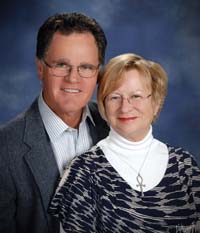On Wednesday, February 27th North Bay business leaders attended Sonoma State University’s Economic Outlook Conference at the newly opened Weill Hall at the Green Music Center. The focus of the event was “Game-Changers: Innovations and Leaders Transforming the North Bay Economy”.
Keynote speeches were provided by Sandy Weill, Former Chairman and CEO of Citigroup, and lead donor to the Green Music Center; and Dr. Robert Eyler, Frank Howard Allen Research Fellow in Economics, at Sonoma State University (SSU). Nearly 700 university students also attended the event as members of a large civics course taught at the university.
At this time of economic uncertainty, the underlying take-away from the presentation was a more optimistic outlook for the local economy, with ideas being presented on how best to adapt to change.
Sandy Weill discussed the economic benefits which are expected to accrue to Sonoma State University and Rohnert Park as a result of the new, state-of-the-art Green Music Center – a concert hall with few rivals in America. Increased tourism is anticipated for performance events, classes, and related activities which will strengthen and allow further expansion of the hospitality industry in Sonoma County.
To staff these new businesses, hotels, and entrepreneurial service businesses Sonoma State University has curriculum in hospitality, viticulture, and business which have been created with active involvement with local community and business leaders.
This is good news for the business community and is good news for the real estate sector. Businesses need skilled employees for expansion and increased economic activity will stimulate job growth. Rising personal incomes from economic expansion should help support expansion of housing where possible, and support values for existing homes where supply can’t be easily increased.
In regards to much anticipated cuts in federal and state spending in our local economy Mr. Weill stated that The State of California and our local communities can only support basic services in most instances. The solution for bridging the funding or service gaps lies in the formation of private/public partnerships to invest in programs, activities, and organizations that support important ideas and needed services.
Businesses should look for opportunities to give back to the communities they serve through contributions of funds, management talent, and other business acumen and resources. The economic rationale for such philanthropy is the idea that those businesses which become known for their community involvement will have a competitive advantage over those who don’t.
Dr. Robert Eyler provided an economic overview regarding the strength of the current economic recovery. Information was presented using a Sonoma State University economic model which weighed and compares the performance of local leading and coincident economic indicators – all of which pointed to continued growth, albeit at a rate slower than everyone wants.
The data indicated that the current economic recovery began in late 2009 and is still in its early stages following a severe, major recession. 2012 was a strong year for Sonoma County and 2013 is expected to be equally strong.
Dr. Robert Eyler stated that on a global basis, European financial austerity programs and the slowing of China’s economic growth rate were important to monitor as these may relate to rising or leveling of tourism to Sonoma County. Interestingly, the rise of a middle-class in China has resulted in greater demand for luxury products – with “Sonoma” being already established as an international brand.
This fact will benefit those related sectors of our diverse economy – wine, artisan breads/bakery goods, craft beer, cheese and dairy. He stated that as a destination, Sonoma County has few rivals due to climate, beauty, and our reputation for service and hospitality. However, more is needed to promote Sonoma County and differentiate the experience we offer as compared to that of our more famous neighbor to the east. The best way to do so is to be the best ambassadors we can be for our communities, both locally in our interactions with visitors, and with those we meet when we travel.
Sonoma County will continue to have growth in our technology sector, as technology firms continue their expansion in Marin County and the South Bay. However, Dr. Eyler believes better results may occur from investment in those areas where we have a competitive advantage – agriculture, recreation, and hospitality.
Visitors envy our apparent slower-paced lifestyle and aspire to make it their own. Our ability to serve, to educate, to entertain, and to befriend those who chose Sonoma over alternative destinations will be the key to our future economic success. He sees the need to increase our hotel capacity within the county both as a means to serve growing numbers of visitors, but also as a way to finance local economies through the transient occupancy tax (TOT) dollars which support governments.
Two panel discussions were presented during the conference which featured local business leaders in the areas of tourism, agriculture, viticulture, manufacturing, and communications. For the benefit of students in attendance they presented their case histories of their firms, the challenges faced in the current economy, and tips on how to start or grow a business.
Tony Magee, Founder of Lagunitas Brewing discussed how learning to brew beer was only his entry ticket to the industry. He stated that his real job was that of building his brand and hiring the right people in anticipation of growth, not afterwards. Self-knowledge of strengths and limitations was what he stated as being a key factor in his timing decisions.
John Crean, President and CEO of Estate Cheese/Sonoma Creamery discussed the benefits of growing an established brand over starting one from scratch. He updated existing product labels, logos, and added value to products by providing better consumer information and disclosure. He advised that if you want to succeed in business, you have to make a name for yourself – thus requiring outreach, networking, and self-promotion. He also stressed the ability to build a strong team as being essential for long term growth and success in changing times.
The panelists all agreed that dealing with change is the new business reality. Success will be achieved by those who embrace the discomfort of a changing environment, continue to innovate, build management teams with diverse experience and outlooks, work a solid business plan, put people first, and work consistently to identify and evaluate if an existing standard operating procedure, habit, or routine is in need of change.
Our take-away from this conference was that if the brightest minds in the county are feeling more optimistic, we see no reason to believe otherwise. Perhaps a more important outcome was a feeling of profound gratitude for being able to live where we do, with the neighbors and community we have, at these most interesting, changing times.
We’re fond of saying to clients in the midst of a move or housing transition is that “The only one who welcomes change is a wet baby”. Well, with change being the new normal, we and those in our industry will adapt accordingly.





